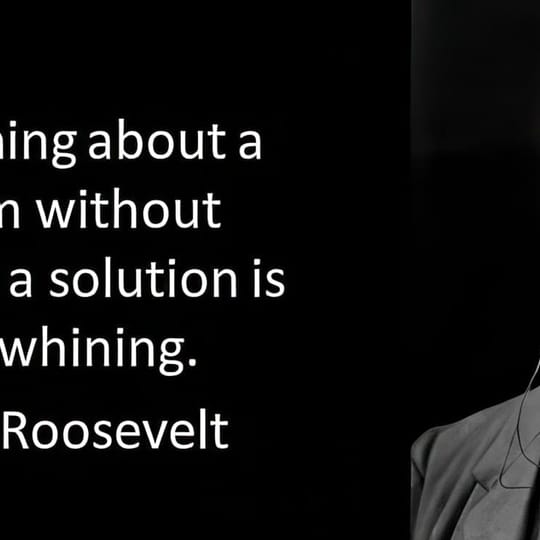
I don't know about you, but I hate
complaining. I grew up in a poor and chaotic alcohol-laden world loaded with complaining from my wonderful "step-father" who sat at our cheap Formica kitchen table with his whisky highball and bitched about everything, including how I was always "eating us out of house and f&*%ing home."
So what has been the impact of this software app that my "dad" installed into my brain as a child that was running in the background subconsciously as an adult? One example is with my wife, Lea.
For years, when she came home from work (she was a high-risk obstetrician), she would need to decompress by telling me about any of the "shitty" events of her day. I pretty much never talked about my problems of the day unless they reached the level of a patient death or major complication. Having become a bit more enlightened and aware, I now realize that talking about an emotionally negative event reduces amygdala activation, which helps calm one down.
Plus, I did not realize the distinction between complaining and the need to decompress verbally to calm the amygdala down.
So, I had three huge challenges as I sat and listened to Lea unload the events of her day:
- It always triggered me (the software app of my past steering my mental ship like an embedded parasite) and made it extremely hard to listen, which made her feel like she was not seen and heard.
- I feared that if I fed the fire of her (or anyone's) "complaining" by saying anything that validated her feelings or perspective, it would only pour gas on an already lit fire and lead to a five-alarm blaze.
- I had no idea how to help steer her away from going deeper down the rabbit hole of whatever story of her day had upset her.
Here is an extraordinarily effective move from the retired Navy Seal Jocko Willink called Reflect and Diminish for dealing with someone who is actually complaining or even just seriously upset about something that will:
- Allow them unload verbally which will help calm down their amygdala.
- Shift the conversation from the problem to potential solutions.
- Create a deeper connection with the other person because they feel understood.
Here is Jocko explaining it in a podcast interview with Lewis Howes:
The example used in the video:
A colleague at work comes to you all worked up and says in a huff:
"The supply department didn't give me the stuff I needed for two weeks." (insert "they didn't have the needle driver I always use" if you are a surgeon).
The key here is NOT to say things like "calm down" or "settle down" (my past go-to line🥴). Say something like that, and all that is accomplished is that the other person realizes that you and the supply department are against them and that no one understands.
Instead, institute the Reflect and Diminish protocol:
Colleague (whipped up and in a huff): "The supply department didn't give me the stuff I needed for two weeks."
You: "Oh, you gotta be kidding. Two weeks!! Can you believe it!!? That's horrible! We gotta get this figured out. In the meantime, what can we do right now to get the problem solved?"
Now, you have deescalated the situation and put in motion a problem-solving mindset.
This stuff also works with children. I love this phrase by Becky Kennedy, the author of the book Good Inside: A Practical Guide to Resilient Parenting Prioritizing Connection Over Correction that can open the door to calming the emotional waters and foster dialogue and connection:
"I am so glad you are talking to me about this."
But then you have to shut up and listen.
Good stuff. Give it a try.
A note: a huge thank you, sincerely, to all who take the time to read these posts. I feel so fortunate to have you all as readers and to be able to translate my personal experiences and learnings into something I hope is of value to you. I wish you all a happy new year!
Michael
P.S. - any feedback, ideas, or suggestions are welcome!